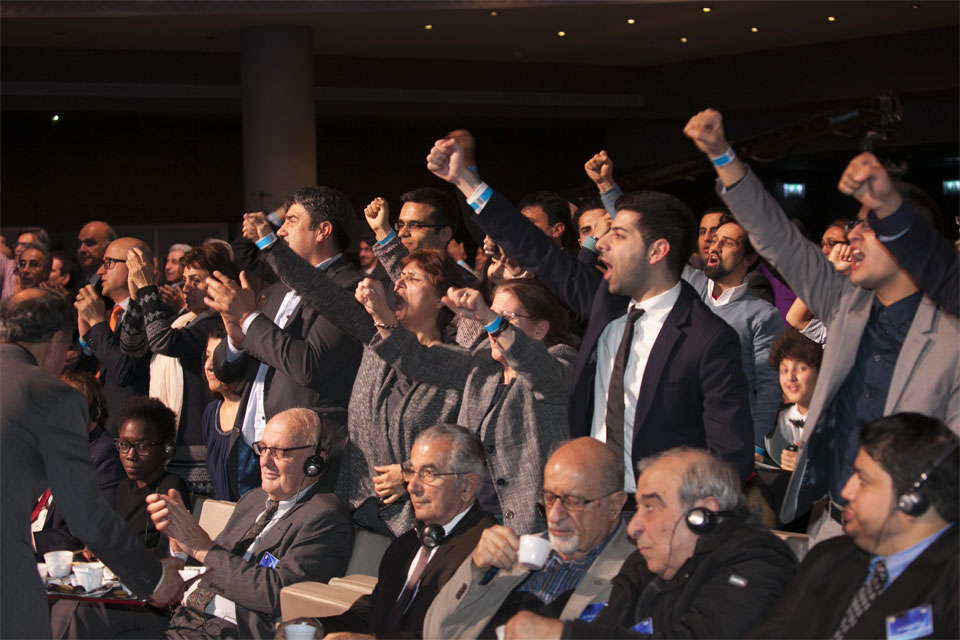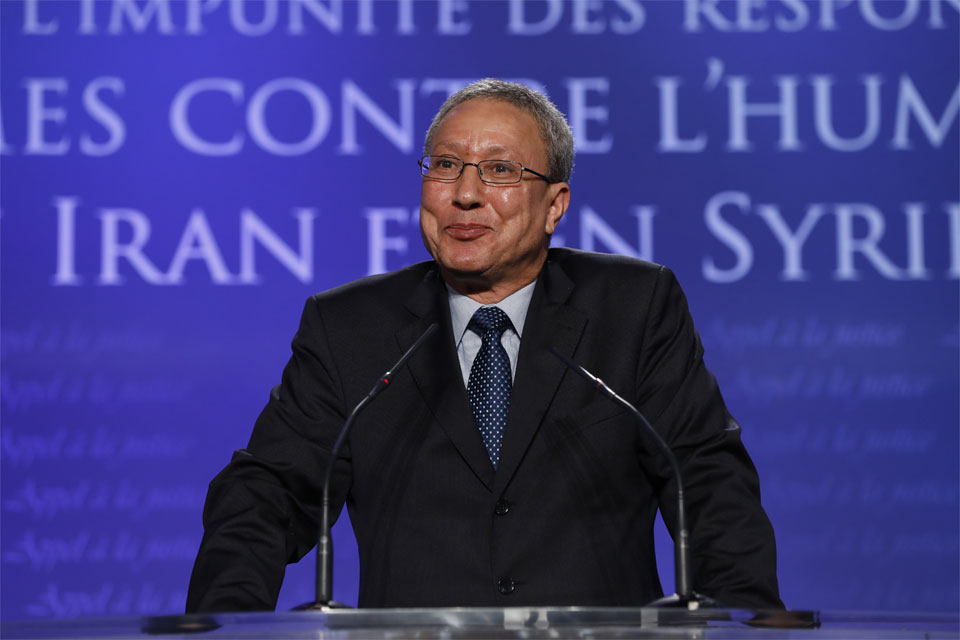Tahar Boumedra, former chief of the Human Rights Office of the United Nations Assistance Mission for Iraq (UNAMI), told a Paris conference on Iran’s 1988 massacre that the UN ought to prosecute the perpetrators of that atrocity for crimes against humanity.
Boumedra made the remarks at a conference on 26 November 2016 in Paris’ Mutualité conference centre, titled, “Call for Justice: Ending Impunity for Perpetrators of Crimes Against Humanity in Iran and Syria”.
Excerpts of his presentation follow:
… Let me tell you, as a remembrance of the situation of real crimes against humanity, when I stood in the house of one of the Iraqi officials, urging him to give one word to save lives, to give one word on the telephone to the people on the ground, to his soldiers, to say “Stop it”. That’s what “stop it” would have saved a lot of lives, but he refused.

I am sure, Mr Geoffrey Robertson will agree with me, that when you face a man in charge of the attack again the Ashrafis [Camp Ashraf residents], you tell him, “please stop it, that will save lives”, he refused to do so. And as far as I am concerned, he is a criminal and he should be held accountable for that action.
The reason I’m here today is to talk about what’s left to be done — what’s left to be done in the context of the justice for victims or the 1988 massacre in Iran. As you know, an association has been launched this summer with an ambitious program, which is to bring those suspects of having committing crimes against humanity, the massacres that took place in 1988, to try to identify them, to try to also identify the laws applicable, to try to identify the jurisdictions that could entertain those cases, and to try to prepare a file for the United Nations.
Speaking about these issues, I would try to rather avoid it because in the presence of Mr Geoffrey Robertson, Madame [Fatoumata] Diarra, there about the people who have the priority to speak of these issues. But all I want to say is that the laws of the United Nations are progressively developing, there is a United Nations commission that is codifying and also progressively developing the law, so this is something we look forward to exploit.
There is also a lot of things happening in the United Nations. We have a new secretary general of the United Nations, we have lots of hope on his role in this intervention in reorganizing the structures of the United Nations, that will be able to look into these issues and try to address them properly.
We know that the previous special rapporteur of the United Nations on human rights in Iran did somewhat, it’s being criticised, it’s incomplete, they could have done better, but believe it or not, those reports have achieved a lot of positive issues. Because today we have on record that thousands of defenceless people were executed in extra-legal manners.
So, we hope and we urge the new Secretary General to revive the Special Procedures.
I am sure that the new Secretary General will look into this matter and would give more importance and more power to this council, and also those who perpetrated violations of human rights will be banned from being members of this council.
We will very soon present on behalf of the justice for victims of 1988 massacre in Iran, a report. This report will try to identify the crimes, the laws, the jurisdictions.
The report will try to be as objective as possible, therefore it will not be an analytical report, it will be a fact-finding report. When this report is ready, we hope by the time the new secretary general will take his positions, the report will be on his desk.

